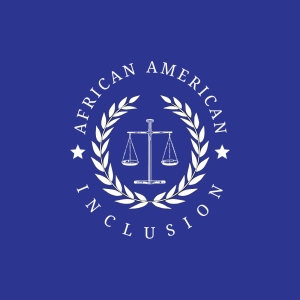THE GI BILL
The GI Bill is a law that provides educational and housing assistance to veterans of the U.S. military. The original GI Bill, also known as the Servicemen’s Readjustment Act of 1944, was designed to help veterans readjust to civilian life after serving in World War II. Since then, the GI Bill has been amended and expanded to include a variety of benefits, such as tuition assistance, vocational training, and home loan guarantees. The current version of the GI Bill, known as the Post-9/11 GI Bill, provides education benefits to veterans who have served on active duty after September 10, 2001.
The GI Bill has played a significant role in helping veterans successfully transition to civilian life after serving in the military. The education and training benefits provided by the GI Bill have helped veterans acquire the skills and knowledge necessary to pursue successful careers in a wide range of fields.
One of the most important ways the GI Bill has helped veterans is by providing them with access to higher education. Before the GI Bill, many veterans were unable to afford a college education. But with the help of the GI Bill, millions of veterans have been able to attend college and earn degrees, which has helped them secure better-paying jobs and improve their overall economic well-being. Additionally, the GI Bill has also provided veterans with access to vocational training programs and apprenticeships, which have helped veterans acquire the skills necessary to pursue careers in fields such as healthcare, information technology, and manufacturing.
The GI Bill also provide home loan guarantees which has also helped veterans buy their own homes and become homeowners. This has been a key factor in their ability to establish roots in their communities and build wealth over time. Overall, the GI Bill has played an important role in helping veterans achieve the American Dream, and it continues to be an essential resource for veterans today.
The eligibility requirements for the Post-9/11 GI Bill
- Service Requirements: Veterans must have served at least 90 days of active duty service after September 10, 2001, or have been honorably discharged with a service-connected disability after serving 30 continuous days following September 10, 2001.
- Character of Service: Veterans must have been discharged under honorable conditions.
- Time Limitations: The benefits must be used within 15 years after the veteran’s last discharge or release from active duty.
- Transferability: Service members must have served at least six years in the Armed Forces and agree to serve four more years in order to transfer their benefits to their dependents.
- National Guard and Reserve members: National Guard and Reserve members may also be eligible for the Post- 9/11 GI Bill if they were activated for at least 90 days after September 10, 2001, and were discharged under honorable conditions.
- Some veterans may not be eligible if they have a dishonorable discharge or if they have used up their benefits under the old GI bill or other educational programs.
It’s always best to check with the Department of Veterans Affairs (VA) to confirm your specific eligibility for the Post-9/11 GI Bill and the benefits for which you may qualify. Also, you can visit the VA website or speak with a VA representative for more information on how to apply for benefits.
The GI Bill helped African American veterans pursue education by providing financial assistance for tuition, books, and other educational expenses. The bill provided funding for veterans to attend colleges, universities, and vocational schools, allowing them to acquire new skills and gain knowledge in their chosen fields.
However, despite the provisions of the GI Bill, African American veterans still faced significant barriers to accessing education. Many institutions of higher education were segregated, and African American veterans were often denied admission or faced discrimination in their classes and on campus. It wasn’t until the Civil Rights Act of 1964 and other legislation that prohibited discrimination based on race, color, religion, sex, or national origin, that African American veterans began to receive equal treatment under the GI Bill.
With these protections in place, African American veterans were finally able to fully participate in the benefits provided by the GI Bill and pursue higher education without facing discrimination. Overall, the GI Bill played a significant role in helping African American veterans pursue education and has helped to close the educational gap between African American and white veterans.
The GI Bill helped black veterans access better career options by providing financial assistance for education and training. By pursuing higher education or technical training, black veterans were able to acquire new skills and knowledge that would help them secure better paying jobs and advance in their careers. However, despite the benefits provided by the GI Bill, black veterans still faced significant obstacles in their careers due to ongoing racial discrimination in the job market. For many black veterans, the bill was a starting point, but not a guarantee, of better career opportunities.
Organizations that apply the GI Bill and help African Americans in better education and career options:
- The Department of Veterans Affairs (VA) – The VA administers the GI Bill and provides educational and financial assistance to eligible veterans. The VA also provides counseling and support services to help veterans transition to civilian life and pursue their education and career goals.
- The National Association for Equal Opportunity in Higher Education (NAFEO) – NAFEO is a national organization that represents and advocates for historically black colleges and universities (HBCUs) and other minority-serving institutions. NAFEO works to ensure that black veterans receive equal access to the benefits of the GI Bill and other education and training programs.
- The Veterans of Foreign Wars (VFW) – The VFW is a national organization that provides support and assistance to veterans, including black veterans. The VFW provides information and guidance on the GI Bill and other programs that can help veterans access education and better career opportunities.
- The American Legion – The American Legion is a national organization that provides support and assistance to veterans, including black veterans. The American Legion provides information and guidance on the GI Bill and other programs that can help veterans access education and better career opportunities.
- The National Black Veterans Association (NBVA) – The NBVA is a national organization that represents and advocates for black veterans. The NBVA works to ensure that black veterans receive equal access to the benefits of the GI Bill and other education and training programs and to provide support and assistance to black veterans as they pursue their education and career goals.
These organizations, among others, play an important role in helping African American veterans access the benefits of the GI Bill and in providing support and assistance as they pursue their education and career goals.



